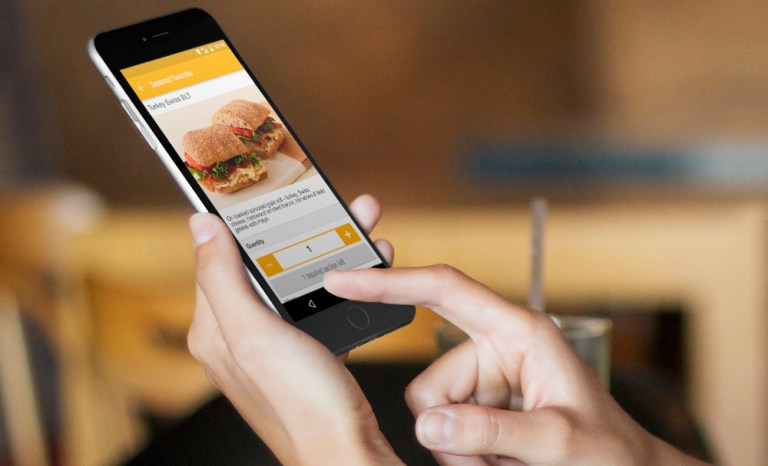Mobile Order-Ahead Poses Physical Challenge For Restaurant Industry

Consumers are changing the way they interact with food, but are restaurants keeping up? Online ordering and online payments via websites and smart devices now make up 6.6 percent of total restaurant orders, finally surpassing orders called in by phone (now 5 percent of the total).
That’s been good news in some ways. In-person visits to restaurants are on the decline, and take-out orders are keeping many companies in the black. But on the flip side, a lot of enterprises aren’t equipped to handle the physical challenges introduced by the digital dining trend of mobile order-ahead.
One of the hardest problems to solve? Containers. Delivery is all well and good for pizza — Domino’s has had years to perfect it. But french fries get cold and soggy, burger buns get mushy, waffles deflate and burrito bowls wilt.
Denny’s spent two years developing specialized boxes to keep eggs, burgers and waffles fresh in transit. Red Robin is still working on the perfect vessel. Both restaurants have only recently introduced mobile ordering and delivery.
Another tricky issue is layout. While mobile pay makes the payment aspect of ordering more efficient, the issue arises when said customers come to collect their food. Restaurants that get a lot of digital orders may want to trade in some tables and chairs to increase their food pickup space or add dedicated pickup parking spots.
In the kitchen, it may be time to add a dedicated digital delivery food prep line to ensure that both digital and physical customers’ needs are met. Otherwise, online ordering may back up the line and discourage walk-in visitors. This became an issue at Starbucks, which has been a pioneer in the realm of mobile order-ahead.
Finally, restaurants must decide how food will be delivered. Will they go the same route as Panera and hire their own delivery drivers (projected to create 10,000 jobs by the end of 2017) or tap into third parties like UberEats, which are still gaining traction and are largely untested?
Those established in the restaurant industry may question whether they want to add digital ordering at all or just stick with a traditional website and a dedicated customer base. But considering the fact that there are few restaurants more established than McDonald’s — and that the fast food giant is now scrambling to climb on the bandwagon — the answer to this is probably yes.